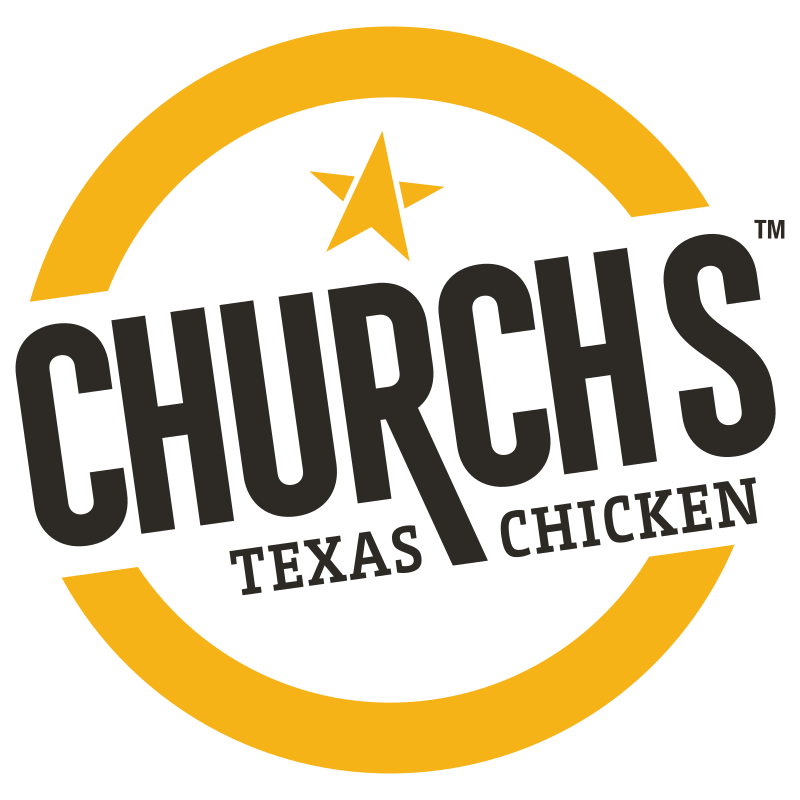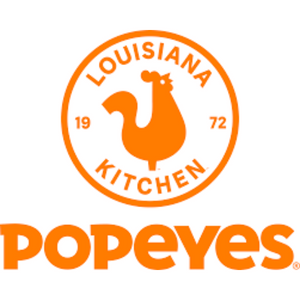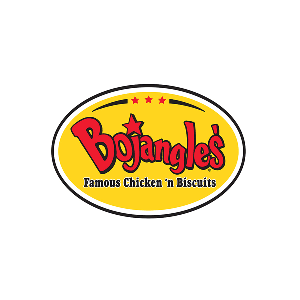Church’s Chicken Franchise in 2024: Costs, Fee & FDD
Discover the potential of investing in a Church’s Chicken franchise, from its strong brand presence to its comprehensive support system. Explore key insights, costs, and performance factors that could make this iconic franchise your next business venture.

Table of Contents:
Church’s Chicken, founded in 1952 by George W. Church Sr. in San Antonio, Texas, started as a small operation next to the Alamo. From its humble beginnings, Church’s has grown into one of the most recognized names in the quick-service restaurant industry, particularly in the fried chicken segment. The brand’s legacy lies in its ability to deliver flavorful, Southern-style fried chicken that resonates with a wide audience, making it a go-to destination for comfort food lovers across the globe.
At the heart of Church’s Chicken’s menu is its signature hand-breaded fried chicken, known for its crispy exterior and juicy, flavorful meat. Beyond the star attraction, the brand offers a variety of complementary items like honey-butter biscuits, mashed potatoes, and fried okra, catering to a broad range of tastes. Their core customer base includes families, individuals, and anyone craving a hearty, satisfying meal. Church’s serves a diverse market that spans urban and suburban areas, with a strong appeal to customers seeking both value and taste.
Today, Church’s Chicken operates over 1,500 locations in more than 20 countries, making it a truly global brand. The franchise serves millions of customers daily, with a presence that extends beyond the U.S. into regions like Latin America, Asia, and the Middle East. This expansive reach highlights Church’s ability to adapt its offerings to various markets while maintaining the core elements that have made it a beloved brand.
As a potential franchisee, you can expect robust support from Church’s Chicken. The franchise offers comprehensive training programs that cover everything from operational procedures to customer service, ensuring that franchisees are well-prepared to run their business. Additionally, Church’s provides ongoing support in marketing, supply chain management, and business development, all designed to help you succeed in a competitive market. With a focus on consistency and quality, Church’s Chicken aims to empower its franchisees to deliver the same great experience that has defined the brand for decades.
Church’s Chicken Franchise Insights
- Global Reach: Church’s Chicken operates in over 20 countries with more than 1,500 locations, making it one of the most recognized fried chicken brands worldwide.
- U.S. Presence: With 901 locations in the U.S., of which 745 are franchised and 156 are corporate-owned, Church’s Chicken has a significant footprint in the quick-service sector.
- Established Brand: Although Church’s Chicken started franchising relatively late in 2011, its long-standing history since 1952 gives it a strong brand foundation and recognition.
Church’s Chicken Franchise Key indicators
Growth YOY (%)
-1%
vs industry 0%
Total U.S. Franchised Units
745
3-Year Failure Rate
18%
vs industry 10%
Sales-to-Investment ratio
0.7:1
How much does it cost to open a Church’s Chicken franchise?
Understanding the potential investment size and capital requirements is crucial when considering opening a Church’s Chicken franchise. These financial commitments, including initial franchise fees, equipment costs, and ongoing operational expenses, impact the feasibility and profitability of the venture. Thoroughly evaluating these factors ensures that potential franchisees are prepared for the financial responsibilities and can make informed decisions about their ability to sustain and grow the business, ultimately contributing to long-term success.
Min & Max Investment
Opening a Church’s Chicken franchise involves several key costs, which are outlined in Item 7 of the Franchise Disclosure Document (FDD). You can see a breakdown of the costs to open a Church’s Chicken below from the most recent Item 7 below:
| Type of Expenditure | Minimum Investment | Maximum Investment |
|---|---|---|
| Development Fee | $10,000 | $10,000 |
| Initial Franchise Fee | $15,000 | $15,000 |
| Grand Opening Marketing Funds | $25,000 | $25,000 |
| Real Estate (purchase or lease) | Variable | Variable |
| Site Work | $220,000 | $480,000 |
| Building and Improvements | $605,124 | $750,000 |
| Equipment and Signs | $352,450 | $385,000 |
| Fees, Misc., Architectural and Engineering Services, Deposits | $50,000 | $150,000 |
| Initial Training | $0 | $23,000 |
| Opening Supplies | $6,350 | $12,700 |
| Insurance | $7,500 | $10,000 |
| Utility Deposits | $5,000 | $15,000 |
| Business Licenses | $300 | $600 |
| Additional Funds – 3 Months | $10,000 | $20,000 |
| Total Investment | $1,306,724 | $1,896,300 |
Item 7 in the Franchise Disclosure Document (FDD) is the “Estimated Initial Investment” section. It outlines the total costs a franchisee can expect to incur when starting a franchise, including the initial franchise fee, equipment, inventory, real estate, and other startup expenses. This section is crucial because it provides potential franchisees with a detailed understanding of the financial commitment required, helping them assess affordability and plan their investment strategy effectively.
Required Capital
Based on the data provided and industry standards for quick-service restaurant franchises, here’s what you might expect for the required capital, liquid assets, and net worth to open a Church’s Chicken franchise or a similar one:
- Initial Investment As shown above, the total estimated initial investment ranges from $1.3 millions to $1.89 millions. This includes all the startup costs such as the franchise fee, real estate, construction, equipment, initial inventory, and additional funds for initial operating expenses. Assuming that you will finance your franchise investment, you should plan to have 20% of the total investment amount in the form of equity (cash) for the investment.
- Liquid Assets While the specific liquid asset requirement isn’t provided, a good estimate for a franchise in this range would be around $250,000 to $500,000. This liquid capital ensures that you have enough cash on hand to cover initial operational expenses and any unforeseen costs.
- Net Worth For similar franchises in the quick-service restaurant industry, the required net worth usually ranges from $1 million to $2 million. This figure is important as it demonstrates your financial stability and ability to sustain the business.
These estimates are based on typical industry standards and the data provided, but it’s always best to consult directly with the franchisor for the most accurate and up-to-date requirements.
How much does a Church’s Chicken franchise owner make?
Calculating the salary of a Church’s Chicken franchise owner involves analyzing gross sales to determine total revenue, assessing operational efficiency to understand profit margins, and accounting for franchisor fees and additional expenses such as rent, utilities, and payroll. Effective management of these factors can significantly impact the profitability and financial success of a Church’s Chicken franchise owner. This comprehensive financial analysis helps estimate net profits, from which the owner’s salary can be derived. A clear understanding of these factors ensures accurate salary projections and financial planning for sustainable business operations.
Church’s Chicken Revenue & Gross Sales
Based on most recent analysis, Church’s Chicken franchises have a median gross sales of $897,635. This figure aligns with what is typical for a well-known quick-service brand in similar markets.
Which key factors impact the average revenue performance of Church’s Chicken franchisees?
The performance of U.S. franchisee median gross sales for Church’s Chicken over the past year is likely influenced by several key factors. First, the overall economic environment, including inflation and consumer spending habits, has a significant impact on sales. Rising food and labor costs may have pressured margins, but strong demand for affordable, comfort food likely sustained customer traffic. Additionally, Church’s Chicken’s strategic focus on digital marketing and delivery services could have bolstered sales, particularly as more consumers turned to online ordering. Finally, the brand’s ongoing efforts to enhance menu offerings and improve customer experience may have contributed to maintaining or even increasing sales compared to the prior year.
Church’s Chicken Franchise Operational Costs
If you were to open a Church’s Chicken franchise, there are several key primary ongoing operational costs you’ll need to consider beyond the typical franchise fees:
- Labor Costs Employee wages, benefits, and payroll taxes will likely be one of your largest ongoing expenses. Managing staffing levels and efficiency is crucial to maintaining profitability.
- Food and Supply Costs The cost of raw ingredients, packaging, and other supplies can fluctuate based on market conditions, so keeping a close eye on inventory management is essential.
- Utilities Costs for electricity, water, gas, and other utilities are significant, especially in a restaurant setting where kitchen equipment runs constantly.
- Lease or Mortgage Payments If you are renting or financing the property, monthly lease or mortgage payments will be a consistent operational cost.
- Maintenance and Repairs Regular maintenance of kitchen equipment, HVAC systems, and the building itself is necessary to keep operations running smoothly and to avoid costly breakdowns.
- Insurance You’ll need to maintain various types of insurance, such as property, liability, and workers’ compensation, to protect your business and employees.
These costs will be ongoing and will directly impact your bottom line, so effective management and planning are critical to the success of your franchise.
Church’s Chicken Franchise Fees
When evaluating the ongoing costs of operating a Church’s Chicken franchise, it’s essential to be aware of specific fees that will impact your financial planning. Below are some of the key ongoing fees associated with running the franchise:
- Royalty Fee Franchisees are required to pay a royalty fee of 5% of gross sales. This fee is due within 5 business days after the end of each fiscal week, ensuring ongoing support and access to the Church’s Chicken brand.
- Advertising Fund Contribution You will contribute 5% of your gross sales to the advertising fund, which supports national and regional marketing efforts. This contribution is due at the same time as the royalty fee, with a minimum of $25,000 per year required.
- Additional Fees Keep in mind that there might be other fees associated with specific circumstances or additional services provided by the franchisor.
Understanding these fees will help you better manage your budget and ensure the smooth operation of your Church’s Chicken franchise. It’s always wise to consult the Franchise Disclosure Document (FDD) and communicate with the franchisor for a full understanding of all potential costs.
Church’s Chicken Franchise Earnings
Based on the most recent data, a Church’s Chicken franchise generated an average gross sales of approximately $897,635. For an owner-operator, the earnings associated with this level of gross sales are estimated to be around $134,645 based on industry operating profit margins.
These figures offer a snapshot of the potential financial performance you can expect as an owner-operator, though actual earnings can vary depending on location, operational efficiency, and local market conditions. It’s important to consider these numbers in the context of the overall costs and financial obligations involved in running the franchise to get a clear picture of potential profitability.
How to Open a Church’s Chicken Franchise
Becoming a Church’s Chicken franchisee involves a series of well-defined steps designed to ensure that both the franchisor and the franchisee are well-prepared for success. Here’s a breakdown of the process:
- Initial Inquiry You or your franchise specialist submits an initial inquiry basic information about your interest and background. You should also conduct thorough research on the franchise, including seeing all of the information available on the Vetted Biz franchise intelligence platform, including access to the most recent Franchise Disclosure Document (FDD).
- Franchise Application Once your initial inquiry is reviewed, you’ll be asked to complete a formal franchise application. This document will provide the franchisor with detailed information about your financial status, business experience, and reasons for pursuing a franchise.
- Discovery Day If you decide to move forward, you’ll be invited to a Discovery Day. This is an opportunity to visit the Church’s Chicken headquarters, meet key team members, and gain deeper insights into the business. It’s also a chance for the franchisor to evaluate your fit as a franchisee.
- Franchise Agreement Signing If both parties are satisfied after Discovery Day, you’ll be presented with a Franchise Agreement. Signing this agreement formalizes your commitment and initiates the process of securing your franchise territory.
- Site Selection and Approval Once the agreement is signed, you’ll work with the Church’s real estate team to select a suitable location for your restaurant. This step includes site visits, market analysis, and securing a lease. The chosen site must be approved by the franchisor.
- Training Program Before your restaurant opens, you’ll participate in a comprehensive training program. This typically includes a mix of classroom instruction and hands-on training at an existing Church’s Chicken location. The training covers all aspects of running the business, from operations and management to marketing and customer service.
- Build-Out and Pre-Opening During this phase, your restaurant location is built out and equipped according to Church’s Chicken specifications. You’ll also work on pre-opening activities, such as hiring staff, setting up supply chains, and planning your grand opening event.
- Grand Opening and Start of Operations Once your location is ready and your team is trained, you’ll host a grand opening event to introduce your restaurant to the community. After the grand opening, your day-to-day operations begin, with ongoing support from the Church’s Chicken corporate team to help ensure your success.
Pros & Cons
Pros
Established Brand: Church’s Chicken has been around since 1952, giving it strong brand recognition and a loyal customer base, which can translate into steady foot traffic and sales.
Global Presence: With over 1,500 locations in more than 20 countries, Church’s Chicken has a significant global footprint, providing a sense of security in the brand’s stability and market reach.
Appeal to Value-Conscious Customers: The brand’s menu offers a good balance of quality and affordability, appealing to a broad demographic, particularly in cost-sensitive markets.
Proven Business Model: The Church’s Chicken franchise model has been refined over decades, offering franchisees a tried-and-true system with clear operational guidelines.
Cons
High Initial Investment: The total investment can range from $1.3 millions to $1.89 millions, which is relatively high compared to some other quick-service franchises, potentially making it less accessible for some investors.
Competitive Market: The quick-service chicken segment is highly competitive, with established players like KFC and Popeyes, which means you’ll need to be strategic in location and marketing to stand out.
Fluctuating Earnings: The recent data shows a decrease in median gross sales and owner-operator earnings, which could be a concern depending on market conditions and your location.




